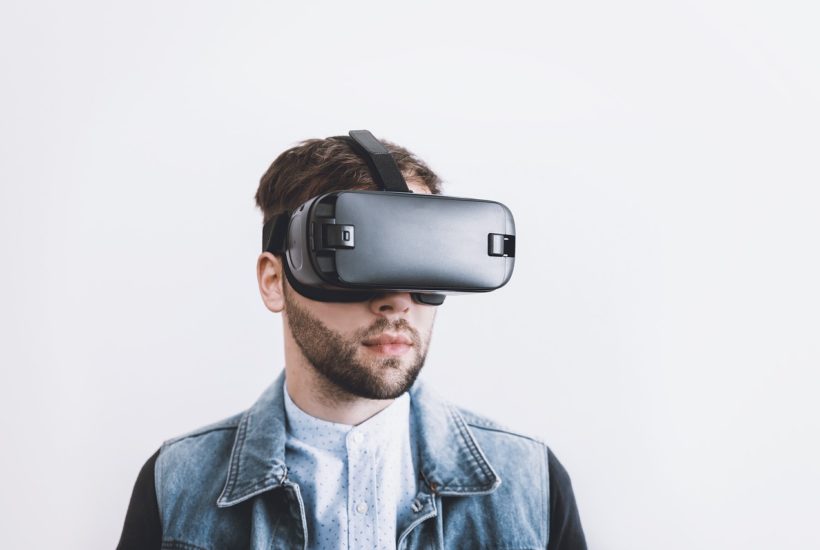Biotech
Psious Obtains €1.5M from the Cdti to Grow in Mental Health
Currently the company Psious, according to the data provided, has more than 2,000 therapist clients, has treated more than 16,000 patients, has conducted more than 150,000 virtual reality therapy sessions, and is present in more than seventy countries. The company closed 2020 with a turnover of over $1.13 million (€1 million), which translates into a 60% increase over the previous year.

The Spanish company Psious, which develops technology to treat mental illnesses, has received a $1.7 million (€1.5 million) grant from the Center for the Development of Industrial Technology (Cdti). This grant will help the company, among other things, to grow in the United States.
The company, which has developed a virtual reality platform specialized in the treatment of mental health disorders, reformulated its strategy in 2020 after the outbreak of Covid-19 and focused on telemedicine. Founded in 2014 in Barcelona, Psious helps psychologists and healthcare professionals around the world to offer innovative therapies with the use of technology. In its scientific work, Psious collaborates with international centers in researching the effectiveness of virtual reality protocols applied to improve mental health.
The company offers therapists and other healthcare professionals what they need to easily apply virtual reality in their practices: unlimited access to the Psious platform, virtual reality kit, a sensor that measures the patient’s physiological activation, and training to stay up-to-date and get the most out of virtual reality.
If you want to find more about Psious and its latest financing round, download for free the Born2Invest mobile app. Our companion app brings you the most important business news from around the world.
Psious has already treated more than 16,000 patients
Virtual reality therapy offers the opportunity for mental health professionals not only to reproduce real-life scenarios but also to adapt and control these environments to meet the individual needs of their clients. This technology allows you to assess and identify your clients’ fears and anxieties within the safety of a consulting room. Virtual reality is a tool that effectively facilitates the application of psychological assessment and intervention protocols.
Currently the company, according to the data provided, has more than 2,000 therapist clients, has treated more than 16,000 patients, has conducted more than 150,000 virtual reality therapy sessions, and is present in more than seventy countries.
The company closed 2020 with a turnover of over $1.13 million (€1 million), which translates into a 60% increase over the previous year. In recent months, Psious has taken on its first employees in the United States. Psious has a similar activity figure between Europe and the United States, but wants to continue consolidating its strategy in the U.S. market.
The company aims to boost telemedicine with reimbursement and double turnover by 2021 compared to 2020.
The company closed an $9 million (€8 million) financing round in 2019
The company closed an $9 million (€8 million) financing round in 2019 co-led by Asabys Partners and Caixa Capital Risc. Sabadell Venture Capital, BStartup10, and the investment vehicle of Carlos Gallardo Piqué, a director of Almirall, also participated in the deal.
The health-focused virtual reality sector changed radically in 2014, when Facebook acquired Oculus, a virtual reality gaming startup, for $2 billion. Samsung soon after launched the first virtual reality glasses.
__
(Featured image by JESHOOTS-com via Pixabay)
DISCLAIMER: This article was written by a third party contributor and does not reflect the opinion of Born2Invest, its management, staff or its associates. Please review our disclaimer for more information.
This article may include forward-looking statements. These forward-looking statements generally are identified by the words “believe,” “project,” “estimate,” “become,” “plan,” “will,” and similar expressions. These forward-looking statements involve known and unknown risks as well as uncertainties, including those discussed in the following cautionary statements and elsewhere in this article and on this site. Although the Company may believe that its expectations are based on reasonable assumptions, the actual results that the Company may achieve may differ materially from any forward-looking statements, which reflect the opinions of the management of the Company only as of the date hereof. Additionally, please make sure to read these important disclosures.
First published in PlantaDoce, a third-party contributor translated and adapted the article from the original. In case of discrepancy, the original will prevail.
Although we made reasonable efforts to provide accurate translations, some parts may be incorrect. Born2Invest assumes no responsibility for errors, omissions or ambiguities in the translations provided on this website. Any person or entity relying on translated content does so at their own risk. Born2Invest is not responsible for losses caused by such reliance on the accuracy or reliability of translated information. If you wish to report an error or inaccuracy in the translation, we encourage you to contact us.

-

 Biotech1 week ago
Biotech1 week agoEurope’s Biopharma at a Crossroads: Urgent Reforms Needed to Restore Global Competitiveness
-

 Africa6 days ago
Africa6 days agoFrance and Morocco Sign Agreements to Boost Business Mobility and Investment
-

 Impact Investing2 weeks ago
Impact Investing2 weeks agoItaly’s Listed Companies Reach Strong ESG Compliance, Led by Banks and Utilities
-

 Fintech3 days ago
Fintech3 days agoFindependent: Growing a FinTech Through Simplicity, Frugality, and Steady Steps














